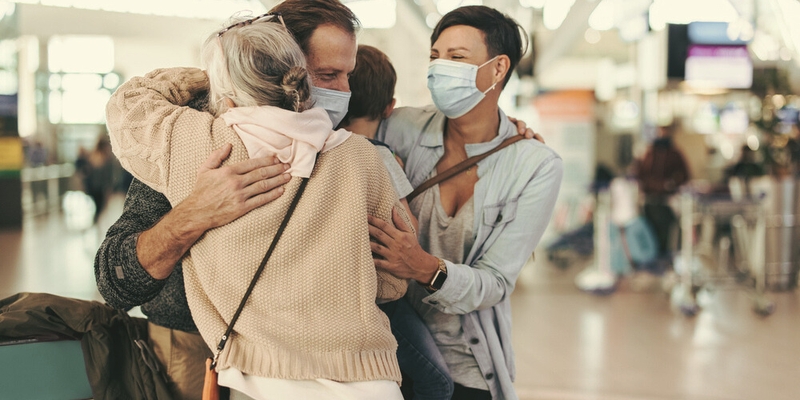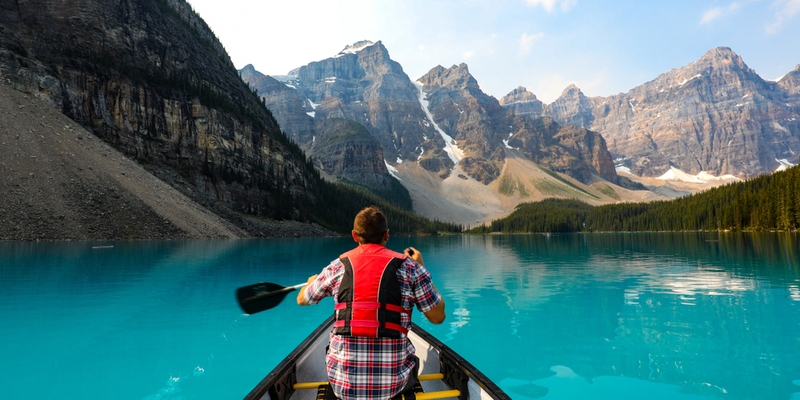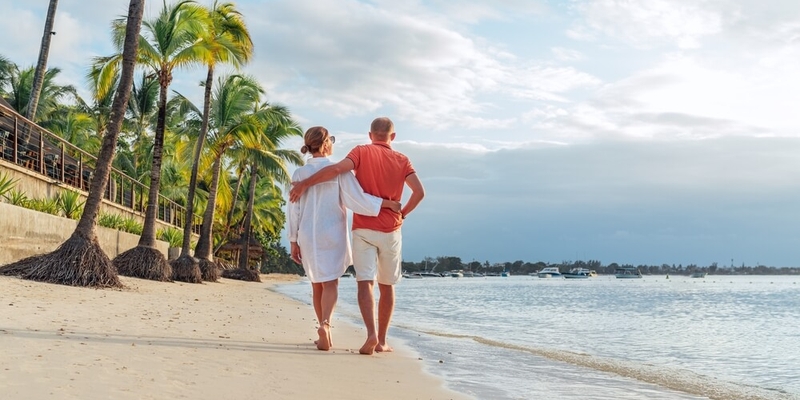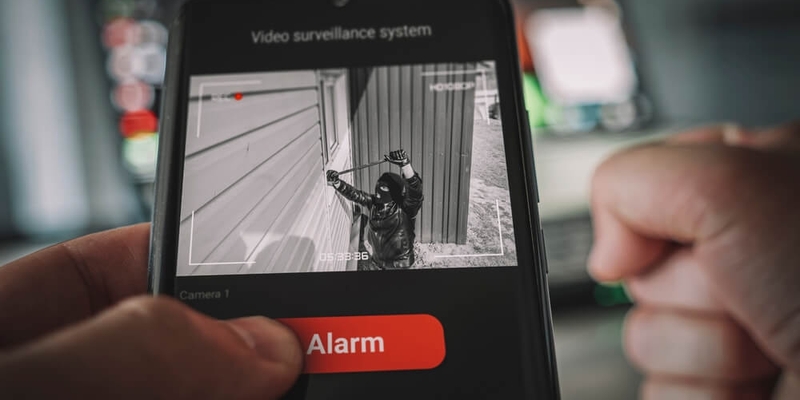
If you are not redirected within 30 seconds, please click here to continue.
Samedi: 10h – 16h HAE

If you are not redirected within 30 seconds, please click here to continue.
If you are not redirected within 30 seconds, please click here to continue.
COVID-19 travel insurance coverage: what’s changed in the last two years?

As we ramp up to the summer travel season, more travellers are expected to flood airplanes and hotels across the world. But this year, things are different. For one, we can say goodbye to having to frantically secure proof of a negative test just before takeoff.
On May 5th, the World Health Organization (WHO) downgraded the COVID-19 pandemic from a global health emergency to an ongoing health issue.
But though the pandemic itself may no longer be a top concern for most travellers, the travel industry overall is still enduring some economic turbulence caused by labour shortages, the rising price of jet fuel, and other hurdles.
Anyone who boarded a plane last year probably remembers the months-long delays to receive their passports, long queues waiting to check in, delayed or canceled flights, or, if they got to their destination, chaos at the baggage carousel.
So, even as the COVID-19 pandemic drifts further and further back in the rear-view mirror, travellers may face new problems ahead yet.
In 2021, only 52% of people traveling internationally from Canada were planning on getting travel insurance. But this year?
“Sales are up significantly in travel insurance,” says Martin Firestone, travel insurance consultant and president of Toronto-based Travel Secure Inc. “In fact, we’ve seen an over-50% increase above pre-pandemic sales.”
The experts have called it: This season, the must-have item is travel insurance.
Trip cancellation and interruption insurance
If there’s one single piece of coverage that’s leading this summer of travel insurance, it’s trip cancellation and interruption.
“That typically was purchased by the select few who were taking major trips of over $10-20,000 with non-refundable deposits, months in advance,” says Firestone. Now, he says, people are buying trip cancellation for single airfares or one-night stays at hotels.
There are a few reasons why consumers don’t think twice about adding flight cancellation insurance when they’re booking their flight.
Firestone points to the union strikes at the federal government that closed passport offices for eight days in April, and ongoing labour disputes at WestJet airline.
“We can do everything we can, but if there’s a shortage of pilots, air traffic controllers, or baggage handlers, all of it will go straight back to where we were last year,” he adds.
Coupled with travel advisories from global political unrest and ongoing illnesses from COVID-19, traveller anxiety can compound.
Travellers should note, however, that if an airline issues a refund for a cancelled flight, they cannot be paid a second time by their insurance company.
“The insurance is always going to be an excess payer,” he says. “If your plane was cancelled and you have to book another trip, these are all claimable, but you have to get a letter from the airline saying that they cannot compensate you.”
Emergency medical
In addition to trip cancellation and interruption insurance, emergency medical coverage is also a necessity for travellers.
Overall awareness of just how insufficient the standard provincial health coverage is outside of the country has increased — especially in the U.S., the most popular country destination for Canadian travellers this summer, according to RATESDOTCA travel insurance quoter data.
“You’re a slip and fall away from a $100,000 bill from the hospital,” says Firestone. “You can’t imagine the cost of care. Someone I know just needed stitches. It was $13,000.”
No more COVID-19 riders
With very few countries enforcing COVID-19 restrictions (though the U.S. still requires proof of vaccination to enter), falling ill from the respiratory disease remains a top concern for many of Firestone’s customers.
During the peak of the pandemic, many insurance companies introduced a special COVID-19 rider that offered extended coverage for illness at lower caps. And then, over time, the virus was treated as a regular medical emergency – but in order to claim coverage for it, people had to show proof of vaccination. Now, even the proof of vaccination requirement has been waived.
But when it comes to claiming trip cancellation due to COVID-19-related reasons, you must have a positive test from a pharmacy or clinic.
“You cannot cancel a trip because COVID-19 has broken out in a country that you’re going to,” says Firestone. “It’s a known cause, and fear of going into a country is no longer an acceptable reason for cancellation.”
Read more: 6 common reasons travel insurance claims are denied
Travel is back, in a big way — and travellers are more prepared than ever
The uncertainty around the world hasn’t stopped people from booking flights and hitting the road. Earlier this year, Air Canada reported a surge in demand, forecasting that 2023 would see a 24% increase in travel capacity from 2022 figures. That’s 90% of their pre-pandemic capacity.
And based on what Firestone and other insurance brokers have seen, it’s safe to assume that very few of those travelers — if any at all — are leaving home without travel insurance.
Don't waste time calling around for travel insurance
Use RATESDOTCA to shop around, and compare multiple quotes at the same time.
Finding the best travel insurance coverage has never been so easy!
Get money-saving tips in your inbox.
Stay on top of personal finance tips from our money experts!










